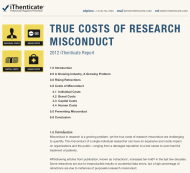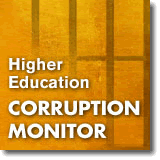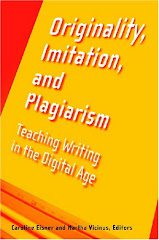Turkish national Serkan Anilir, recently stripped of the doctorate he obtained from the University of Tokyo over plagiarism and falsifying his resume, used that powerful badge of authority to take advantage not just of the institution that gave him the degree but of other universities and research institutes as well.
This is the first time in the history of the University of Tokyo, this country's most prestigious university, that a doctorate has been rescinded.
On Monday, university President Junichi Hamada, apparently feeling a strong sense of crisis, talked about measures to prevent a similar incident from occurring again, such as by applying tougher penalties for plagiarism.
Anilir received his doctorate in 2003 and became an assistant professor at the university in 2007. His position as a University of Tokyo PhD and an assistant professor allowed him to enjoy popularity as a distinguished researcher in this country.
The university was not aware of the Anilir's plagiarism and fabrication of his resume until suspicions became a hot topic on the Internet around September 2009 and the university received similar information from anonymous informants.
By then, Anilir had been hired as a researcher and part-time lecturer at research institutions and other universities. He was extensively covered in the mass media.
Anilir even had a certificate saying he was the first Turkish candidate to be an astronaut with the U.S. National Aeronautics and Space Administration, although NASA has confirmed he was never in consideration.
The A-4 size "certificate," the existence of which has been confirmed by the Turkish Embassy in Tokyo, was written in English, not Turkish. It bore the name of the Turkish Transportation and Communication Ministry as the issuer.
It even has a signature of an actual ranking official of the ministry, but the embassy discovered the certificate was a fake after making inquiries in Turkey via fax.
In addition to a University of Tokyo PhD in engineering and the first Turkish astronaut candidate, Anilir also described himself as a gold medalist in a European under-20 junior skiing competition, a claim rejected by Turkish officials.
He also claims he participated in the 1988 Nagano Winter Olympics as a coach for the Turkish ski team. This too was denied by his home country.
"We used to check the careers [of doctoral candidates], but we simplified the process due to an increase in the number of doctoral theses and a shortage of manpower," Hamada said.
As it is impossible for the university to thoroughly check the careers of applicants in its current circumstances, it has to rely on the consciences of the researchers who have submitted theses, he said.
Anilir's doctoral dissertation was examined by five instructors of the university's Graduate School of Engineering, according to the university. Their evaluations were later compiled by the instructor in charge of advising Anilir at their laboratory.
"There are merits to a candidate's thesis adviser compiling the results," Hamada said.
However, he also said the university would study whether it is appropriate that Anilir's adviser was in charge of his doctoral dissertation and that no third persons were involved in the reviewing process.
The university may punish those concerned if it finds problems with the examination process of the dissertation, he added.
===
Personal relations emphasized
"There may be problems with the environment that make it difficult to spot plagiarism," an official at the Higher Education Bureau of the Education, Culture, Sports, Science and Technology Ministry said when asked about the insufficient examination of Anilir's doctoral thesis.
The Central Council for Education asked universities in its 2005 proposal on graduate school education to introduce measures to increase transparency in awarding degrees, such as employing third persons from outside of universities to examine theses and dissertations.
According to ministry research, 89 percent of graduate school courses employed examination committee members from outside of universities in fiscal 2008, up from 54 percent in fiscal 2007. However, only 9 percent of the courses said advisers were not involved in the examination process.
Akita International University President Mineo Nakajima, who compiled the 2005 council report, said that in the United States candidates' academic achievements and the contents of their research are strictly examined. Advisers usually are not in charge of compiling the results of examinations of doctoral dissertations, he said.
"In Japan, candidates' personal relations with instructors or professors are sometimes valued more highly than the quality of dissertations. All universities have to review their systems for awarding degrees," Nakajima added.







